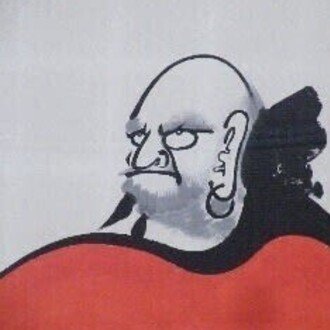
「折楊柳」にふれて。中国古典でイマジネーション膨らむ。【李白Ⅰ】 Get in touch with "Setsuyoryu". Imagination swells in Chinese classics.
過ぎ去りし春を思うことに、新しい出会いに喜び、悲しい別れに沈む季節と言われている。
年を取ると、そんなことで一喜一憂することが極めて少なくなっている。というより、当たり前という現実的なものの考えに馴染んでしまっているのか。一方、年を取ることで、遠く離れた故郷を思う気持ちが一層膨らんでくるのは不思議なものである。
Looking back at the past spring, it was said that it was the season for joyful new encounters and a sad farewell.
As l get older, l am less and less concerned about anything. Rather, I wonder they are familiar with the idea of a realistic thing? On the other hand, it is strange that as one grows older, the feeling of thinking about a hometown becomes even greater.
そんなときに中国古典の漢詩「折楊柳(せつようりゅう)」に触れると、故郷を思う気持ちが増幅される。とくに李白の有名な詩「春夜洛城聞笛(春の夜に洛城で聞く笛の音」が心にしみてくる。
At that time, if you touch the Chinese classic poem “Setsuyoryu,” your feelings of home will be amplified. In particular, the famous poem by Lee Bai, "Spring Night Rakujo Whistle" comes to my mind.
誰家玉笛暗飛聲。散入春風滿洛城。
此夜曲中聞折柳。此夜曲中聞折柳。
何人不起故園情。
(Omit poem)
いったい誰だろう、暗闇の中で笛の音が響いてくる。
笛の音は春風の中に乱れ入り、洛陽の町中に広がる。
この夜、曲の中に「折柳」の調べを聴いた。
これを聴いて故郷を偲ばない者があろうか。
Who is it, the sound of a whistle echoes in the darkness.
The sound of the whistle pervades the spring breeze and spreads throughout Luoyang.
I listened to "Seysuyoryu" in the song that night.
Is there anyone who listens to this and doesn't remember their hometown?
といった訳になる。
当時、李白が30代半ば、洛陽に半年ほど滞在した時の作とされる。
夜、洛陽の宿屋に泊まった李白が、部屋の天井をながめながら、俺の人生はこれからどうなるのか、と考えていたとき笛の音が聴こえてきた。
そのときにこの詩を書いたと言われている。
And so on.
It is said that Lee Bai was in his mid thirties when he stayed in Luoyang for about six months.
At night, Lee Bai, who stayed at an inn in Luoyang, was looking at the ceiling of the room and wondering what would happen to my life, and I heard a whistle. It is said that he wrote this poem at that time.
むかし中国では旅立つ人に柳の枝を折って送る習慣があったようだ。別れの悲しみを歌った「折楊柳」は、いつ日かまた元気で戻ってくるように、という願いを込めた詩である。その歌が、笛で奏でられていたので、故郷を遠く離れて、洛陽の地にいる李白も、
思わず涙ぐんだという。
Once upon a time in China, it seems that there was a custom of breaking willow branches and sending them to travelers. The song "Seysuyoryu", which sang the sadness of parting, is a poem that hopes to come back in good shape someday. The song was being played by a flute, so even Lee Bai, who was far from his hometown and in Luoyang, was crying.

そんな情感に浸ることは、筆者のいまの通常の暮らしの中であるだろうか。有り難いことに、一茶庵の佃宗匠の導きで、非日常空間や時間をいただいている。さらに中国の古典にふれることでイマジネーションの世界を堪能させていただいている。
Is immersing in such emotions in my normal life now? Thankfully, I am receiving extraordinary space and time under the guidance of Issa-an Tsukuda's master. In addition, I am enjoying the world of imagination by touching Chinese classics.
レポート & 写真 / 渡邉雄二
Reported & Photos by Yuji Watanabe
いいなと思ったら応援しよう!

